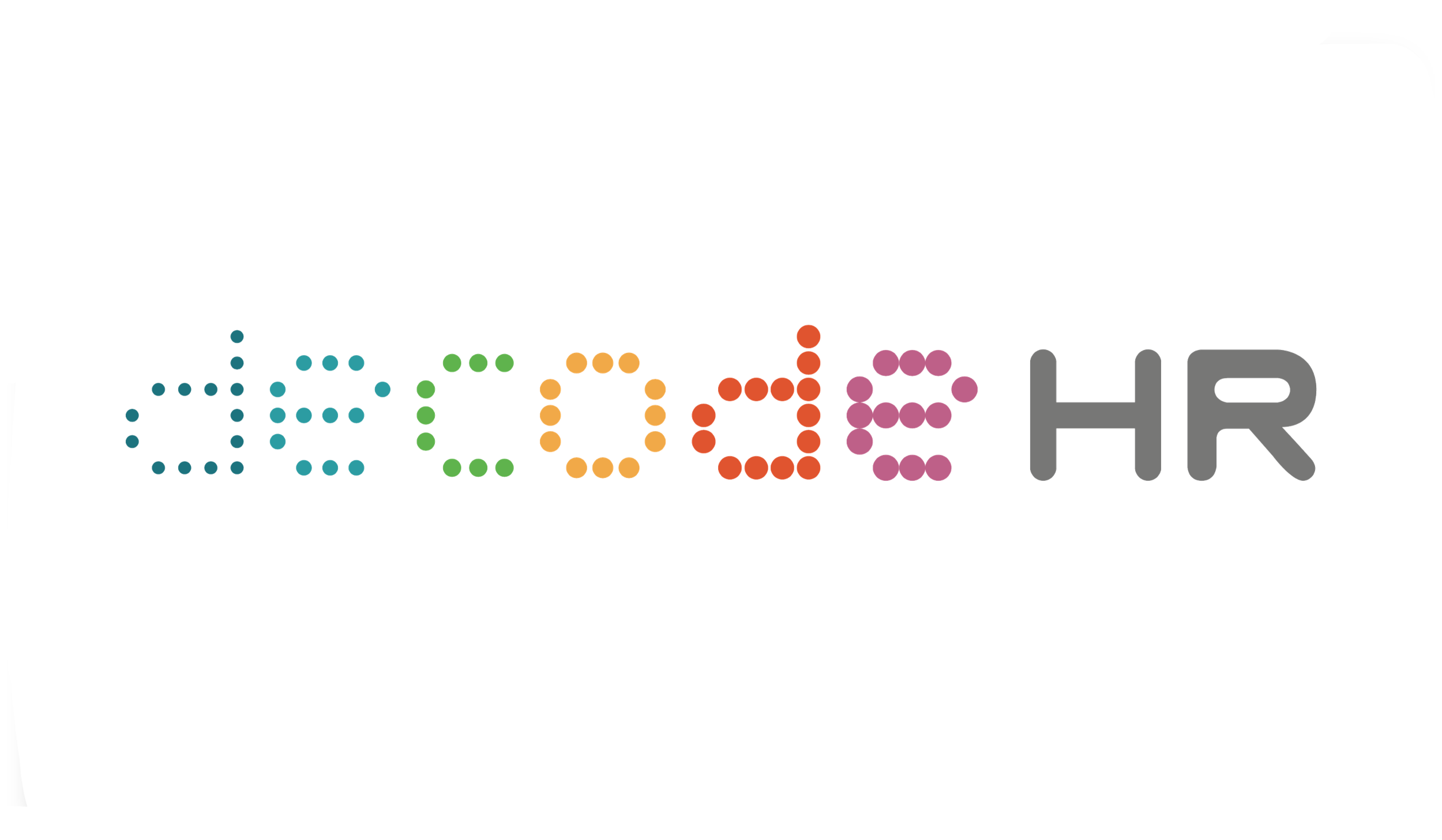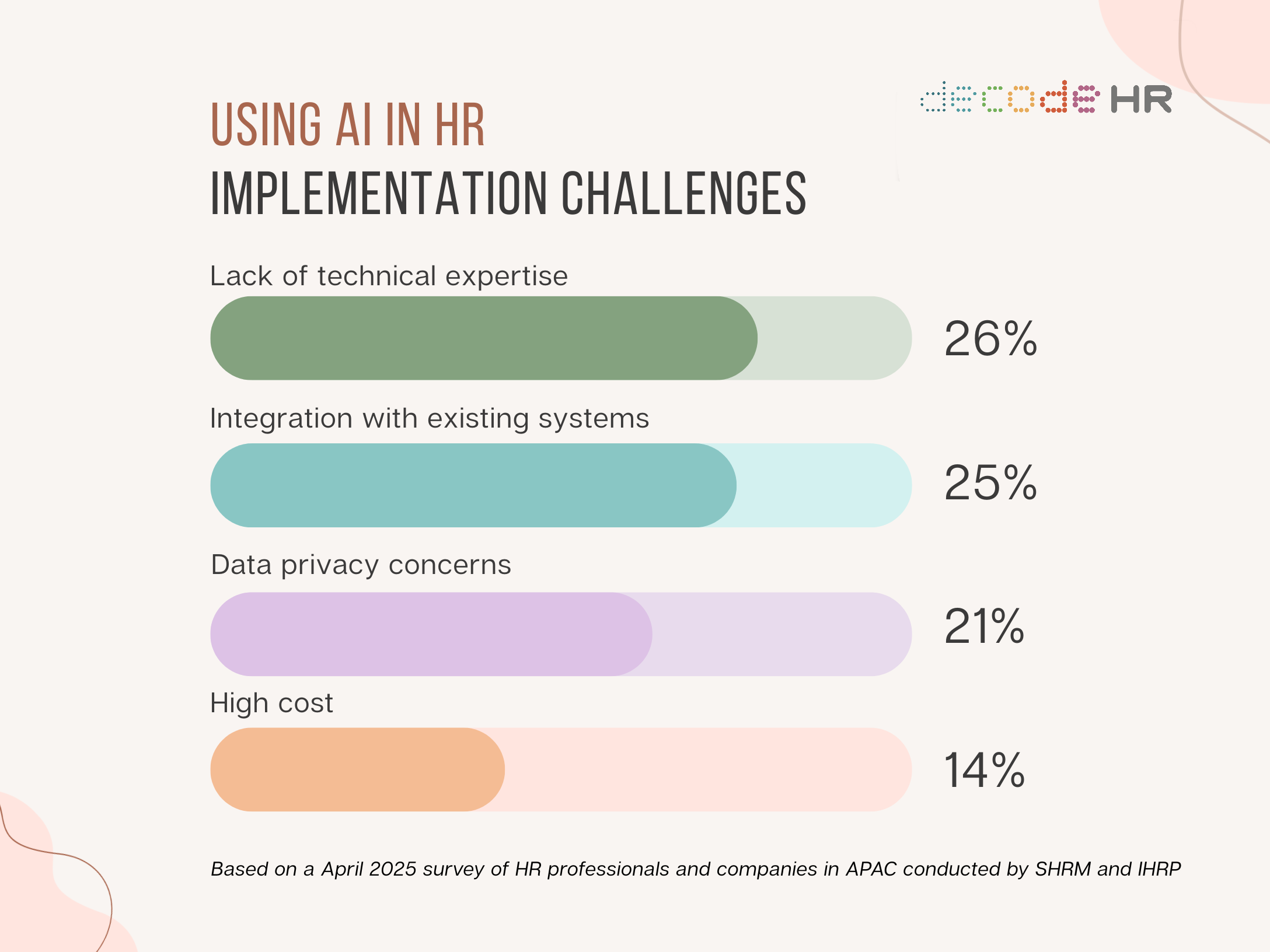Implementing AI in HR: What’s Stopping You?
Reading time: 6 mins
Whether it's the cost, complexity, or compatibility with existing systems, many HR professionals face implementation challenges when it comes to AI.
If you are an HR professional who is assessing the myriad of AI HR solutions in the market, what is on your mind?
Perhaps you are raring to start deploying an AI tool to source the best candidates, tailor training programmes for employees or even automate performance reviews.
Or maybe you find AI solutions too expensive? Too complex to understand? Requires expertise you do not have? Or is it near impossible to integrate them into the systems you have been using for years?
Well, if you have questions and concerns, you are not alone.
In an April 2025 survey on HR Priorities with AI in the Workplace conducted by SHRM in partnership with the Institute for Human Resource Professionals (IHRP), HR companies and professionals in APAC — including 143 organisations in Singapore — were asked for their thoughts on how AI is transforming their field of work.
They were specifically asked about the implementation challenges they faced, and their answers give a clear picture of the on-the-ground sentiment.
#1 Lack of Technical Expertise
The top concern among HR professionals in APAC — with nearly 26 per cent citing it as a major hurdle to AI adoption — is the shortage of AI experts available to develop, implement, and maintain AI strategies.
They struggle to find professionals with expertise in AI development, machine learning and data science.
According to the survey report, a high demand for AI talent coupled with a limited local talent pool has driven up hiring costs and increased competition among employers.
Companies are now turning to either upskilling existing employees or recruiting AI talent from overseas.
#2 Integration with Existing Systems
Integrating AI into existing systems was cited by 25 per cent as a challenge.
Organisations which are entrenched in well-established but ageing legacy HR systems find it hard to change or adapt. Some organisations also grapple with outdated infrastructure, which necessitates digital transformation before AI adoption can even begin.
#3 Data Privacy Concerns
As HR functions involve sensitive information such as employee details, concerns over data privacy — and whether the organisation has rigorous enough processes to manage risk — remain a concern among 21 per cent of those surveyed.
This is especially since the integration of AI tools in areas like recruitment and performance management has led to an increase in the collection and storage of personal data, and data breaches may occur.
#4 High Cost
The high cost of implementing AI is a key challenge for 14 per cent of businesses, especially the smaller ones.
Interestingly, McKinsey suggests that the cost factor gives rise to an S-shaped AI adoption curve — starting slowly due to the investment required for learning and deployment, then accelerating as capabilities and the returns from AI investment become apparent.
We may still be in the beginning part of the curve, but by 2030, AI’s contribution to growth could be three or more times higher than in the next five years.
From Fear to Opportunity
While smaller organisations face greater challenges in implementation, the survey also found that it is these organisations — with fewer than 500 employees — that lead successful implementations of AI in HR.
In fact, among the Singapore respondents, such organisations, specifically in the service sector, are leading the AI charge.
And despite implementation challenges and fears, the APAC respondents are generally optimistic and excited about the difference that AI can make. While 29 per cent of respondents anticipate an increased workload due to Generative AI (Gen AI), a majority — 58 per cent — are confident it will actually decrease their workload.
SHRM suggests that these ground insights from its survey be used as a resource and a call to action for HR professionals.
In the report, Johnny C. Taylor, the President and CEO of SHRM, said: “As HR professionals, we have a significant opportunity — and responsibility — to ensure our employees remain competitive in today's rapidly changing work environment… We need to take the lead in normalising the use of this technology, demonstrating to employees that AI is simply another tool at their disposal — one that can simplify their lives by handling monotonous and low-effort tasks.”
Need help adopting AI? Connect with us today.









